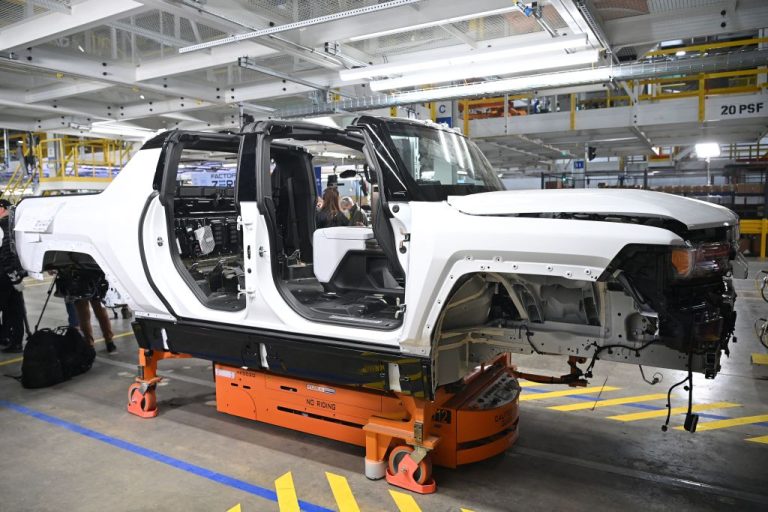The U.S. automotive industry has been forced to cut 100,000 vehicles from its production line in a single week because of chip shortages, an industry outlet reports.
Automotive industry analyst AutoForecast Solutions (AFS) made the determination that producers were still being hammered by the shortage, Breitbart reported.
According to the firm, North American factories alone have had to slash almost 1.06 million vehicles as a result of the crisis.
Almost 3 million have been cut this year worldwide, a figure which is expected to exceed 3.8 million by year end.
Although the figures are exceptional, The Register points out, via data from Statista, that the situation has actually improved significantly over 2021, which saw more than 11 million vehicles cut worldwide.
Success
You are now signed up for our newsletter
Success
Check your email to complete sign up
AFS CEO Joseph McCabe told the outlet, “When it comes to producing vehicles at near 100 percent which will sit waiting for a chip before shipping to dealers, this is a costly process.”
McCabe refers to a trend manufacturers have been forced to deploy of shipping vehicles to dealers for retail sale while lacking the critical chips that operate key conveniences.
Functionalities such as heated seats, heated steering wheels, and rear passenger HVAC controls are disabled on such units, an issue that makers such as Ford have promised to rectify via a recall-like process within a year of sale.
According to July 1 reporting by Associated Press, GM was stuck sheltering 95,000 vehicles in storage while awaiting the chips they needed to finish production.
“The unsold vehicles amounted to 16% of GM’s total sales from April through June. The company said Friday that it sold more than 582,000 vehicles during the quarter, down more than 15% from a year ago,” the article stated.
In April, Volkswagen Automotive Group CFO Arno Antlitz told a German newspaper that his firm did not expect the shortage to abate until at least 2024, adding that analysts expected 2023’s production to only finally begin to catch up to 2019’s levels, The Register reported.
In a May of 2021 article on the shortage, industry analyst firm McKinsey & Associates stated that the crisis was rooted in the impact of Coronavirus Disease 2019 (COVID-19) lockdown measures that rocked global demand, thereby disrupting the supply chain.
The significance of the impact is that South Asia, which was hit especially hard due to its proximity to mainland China, produces the majority of semiconductors and memory chips.
Another critical aspect of the shortage is simply that because of government edicts restricting freedom of movement, people were not buying cars, which meant chip manufacturers shifted production to other industries.
This factor caught the entire system off guard when the car industry recovered faster than expected after COVID-19 turned out to not be the kind of deadly pandemic that warranted shuttering society over the long term.
The impact on the industry is very significant. September of 2021 reporting by CNBC, relying on data from consulting firm AlixPartners, stated that $210 billion in revenue was eliminated from corporate revenue in 2021 alone.
The firm had projected a total loss of only $110 billion in May, and $60.6 billion in January.
















